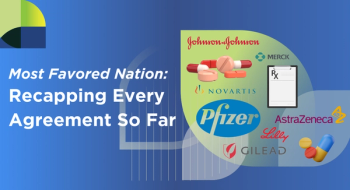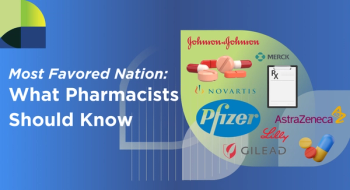
- May/June 2016
- Volume 7
- Issue 3
Patient Satisfaction: The Real Barometer for Success in Specialty
Misinformation among consumers and the media regarding specialty pharmacies illustrates the importance of leveraging factual information to highlight specialty services for patients to raise the customer service bar even higher.
WE JUST ATTENDED THE “GO-TO” SPECIALTY PHARMACY EVENT OF THE YEAR, the Asembia (Armada) Conference.
There were over 5000 of us specialty pharmacy “geeks” there in attendance. There were dozens of world-class presentations, including some of the most relevant specialty continuing education (CE) programs by our very own Pharmacy Times CE team. Over our last several issues of Specialty Pharmacy Times, we featured several articles on the importance of accreditation.
In just the last several years, having one or more accreditations governing your business has had a "survive or thrive" impact on the success of a specialty pharmacy operation. Nearly all pharmaceutical manufacturers—with the increasing trend of limited distribution products—will not consider providing a specialty pharmacy with access to their products and payers will not put a specialty pharmacy in network, or by exception, in the absence of accreditation.
As an industry with a continuing identity crisis, accreditation is a good thing, such that “real” specialty pharmacies can differentiate themselves from the good work that other pharmacy channels perform. Many stakeholders, such as the National Association of Specialty Pharmacy, are attempting to establish a stronger identity for specialty pharmacy.
To my knowledge, none of the boards of pharmacy have created a separate definition or licensure for specialty pharmacy; thus, accreditation is what we have and need. We do not need to be reminded as to why most of us got into pharmacy: taking care of patients.
The patient, however, has been left out of much of the equation with many key drivers of specialty pharmacy selection. This trend has continued to grow, with the influence of manufacturers’ limited distribution models and payers leveraging their own specialty pharmacies, where they exist. Consumerism and patient satisfaction are, and should be, key factors for those individuals our services impact the most, the patients.
Patient satisfaction, however, has not been the key driver in specialty as it is in community pharmacy. Spending a few years behind the retail counter hearing patients’ opinions face-to-face gives a clear picture of their views on the quality of the pharmacy team’s services and deliverables, along with myriad other services.
Specialty pharmacy, however, is more often delivered through the mail, which is a buffer that can insulate from the reality of a face-to-face conversation. We need tools to keep us closer to understanding how we are doing. The URAC Specialty Pharmacy Guide mentions the word "satisfaction" 72 times.
Clearly, satisfaction is an important measure that leads to accreditation, which includes the consumer, client, and patient. While excellent guidance is provided on the elements a specialty pharmacy is expected to measure, most of these surveys are self-administered, as the pharmacy measures against itself.
The satisfaction surveys are not comparative against peers; therefore, although these surveys are of value to help correct or reinforce behavior, the standard against the measure can be inadequate. Specialty Pharmacy Satisfaction Survey Measuring customer satisfaction has been a key element in health care since the beginning of surveys; however, there has not been a specialty pharmacy industry patient satisfaction survey in which the best-of-the-best is recognized.
Zitter Health Insights (ZHI), in a partnership with Specialty Pharmacy Times, have agreed to collaborate in a Specialty Pharmacy Satisfaction Survey (SPSS) that will recognize the top-performing specialty pharmacies for their achievements in customer satisfaction. With the recent lack of understanding among consumers and the media of the great work that specialty pharmacies perform, it is time that specialty pharmacies leverage factual information to highlight our services to patients and raise the bar even higher.
Specialty Pharmacy Times and ZHI will publish and release the results in the first half of 2017, based on research from 2016, in order to focus on a growing unmet need within the specialty industry. Specialty pharmacies, through the special handling of drugs, unique interactions with patients and health care providers, and established training programs for high-cost products that often treat rare diseases, have established a new paradigm in patient care.
ZHI has developed a unique service that helps specialty pharmacies, biopharmaceutical manufacturers, payers, and accrediting bodies better understand patient satisfaction and how it ties into their operations. Although patient satisfaction is a key factor in accreditation, it has not, for the most part, been a key element in decision making for payers and pharmaceutical manufacturers who are now confronted with a new plethora of choices in the specialty space around network development and limited distribution products, respectively.
In speaking to a number of payers and manufacturers at the Asembia meeting, clearly they felt the time is now to heighten awareness around satisfaction through a peer-to-peer review on established standards. Look at satisfaction as a key element to assure your pharmacy obtains access to these 2 key business drivers. The Specialty Pharmacy Satisfaction Survey (SPSS) will be designed to provide insight into the elements that influence patient satisfaction, to distinguish between specialty pharmacies on meaningful measures, and to help specialty pharmacies improve.
By conducting research with thousands of patients who utilize the top 10 to 15 national specialty pharmacies, the PSS will identify the subtle differences between pharmacies and evaluate trends in satisfaction over time. The SPSS Awards will recognize the hard work and efforts of specialty pharmacies and quantify each patient’s unique experience with their specialty pharmacy. Elements that will be measured include:
- Patient choice and specialty pharmacy selection
- Financial assistance and reimbursement services offerings
- Communication and interaction from multiple patient touchpoints
- First fill/refill experience
- Customer service and Net Promoter Score
- Patient switching behavior
- Unique specialty pharmacy services
- Verbatim patient feedback
Goals of accreditation include continuous quality improvement and providing actionable insights concerning patient satisfaction in order to provide stakeholders, such as manufacturers, with tools that will enhance their interactions with specialty pharmacies. The ability to continually receive patient feedback will prove to be valuable for the 4 P’s: the patient, providers, payers, and pharmaceutical manufacturers.
Look for more details regarding the SPSS Awards to be at www.specialtypharmacytimes.com or for more information, please e-mail SP-awards@zitter.com. SPT
Articles in this issue
over 9 years ago
Crohn’s Disease Treatments Alter Components of Gut Microbiomeover 9 years ago
Granix by Teva Pharmaceuticals, Incover 9 years ago
Stem Cell Transplant Shows No Improvement in Crohn’s Diseaseover 9 years ago
Certain Fatty Acids Responsible for Worsening Crohn’s Diseaseover 9 years ago
Challenges Continue for True Patient-Centered Accessover 9 years ago
Cancer: The Next Frontier in Chronic Care ManagementNewsletter
Stay informed on drug updates, treatment guidelines, and pharmacy practice trends—subscribe to Pharmacy Times for weekly clinical insights.


























